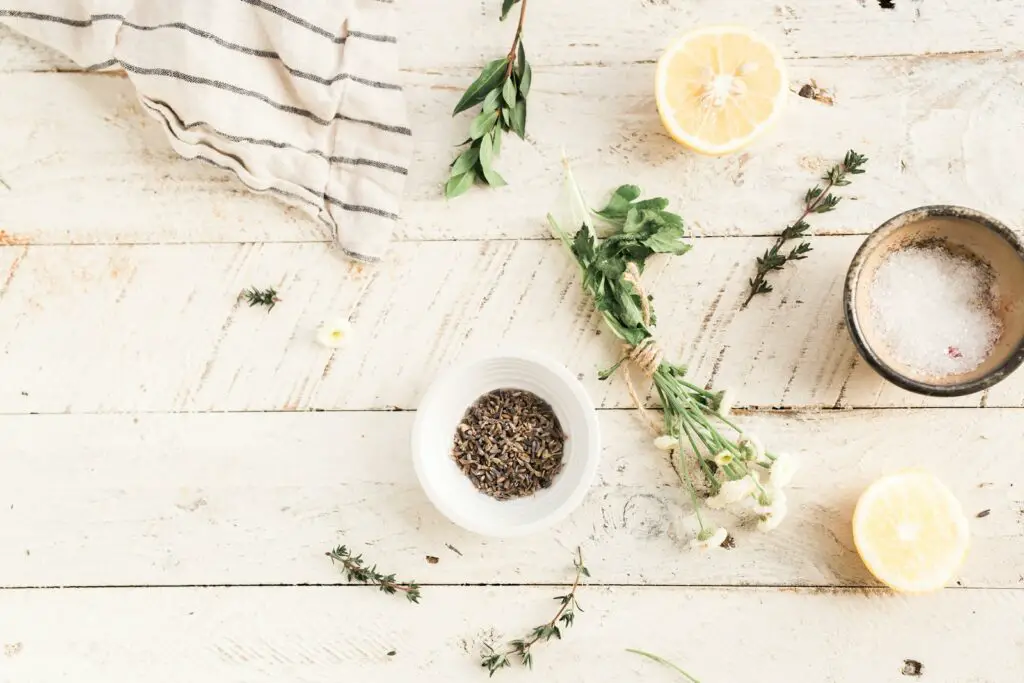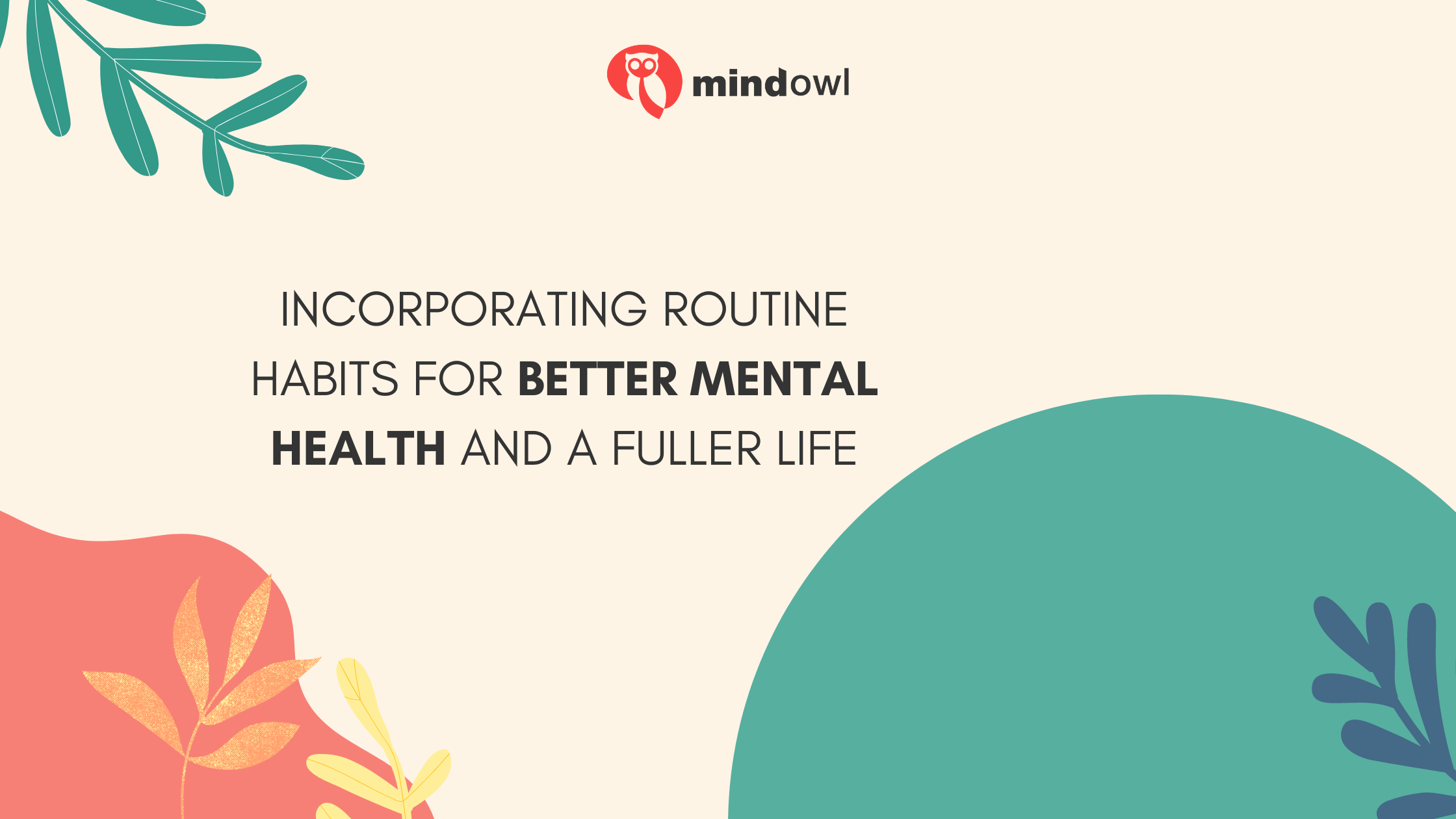It’s often been said that we are what we eat. That’s true (more on that later) but wouldn’t it be more comprehensive to say that we are what we do? People often separate themselves into different categories. Mind, body, and (if you are so inclined) spirit. This dualistic mindset fails to account for how all of our choices mingle to aggregate into our lived experiences.
The food we eat influences the way we feel. The amount of exercise we get can shape our emotional experience. Every choice, every habit, all of the things that make up our routine contribute to our mental health.
So how can you make choices that improve your quality of life? That’s the big question we will tackle below. Read on to learn more about how taking a holistic approach to your habits can improve all facets of your life.
What is Holistic Care?
Holistic care refers to treatment or lifestyle strategies that account for all aspects of a person’s life. Mind. Body. Spirit. Aha! You might be thinking. In the introduction, you said the separation of mind, body, and spirit is an illusion.
Many thanks, careful reader, for keeping us honest. That is true. It’s also the most basic tenet of holistic care. Those who engage with holistic practices do so with the understanding that all aspects of our lives feed into and influence each other.
Let’s look at this from Adam’s perspective. Adam is a made-up person who is suffering from made-up anxiety. He has a high-pressure job and a cluttered personal life. Often, it feels like he’s rushing from one thing to the next, never really absorbing any of his experiences.
He just doesn’t feel good.
For two years now, he has been on anxiety medication. The medicine does have a soothing effect but his life hasn’t changed at all. Same jobs. Same limited attachment to his lived experiences.
Wouldn’t it be nice if there was a way to feel better AND live better at the same time?
Good news, Adam. There is.
A holistic doctor probably wouldn’t tell Adam to throw away his prescription. Mental health medication has real benefits and should not be stopped without careful consideration—even then, only under the advisement of a doctor.
What the holistic care provider will do is recommend activities that are naturally designed to reduce anxiety and produce joy.
Adam still considers himself an anxious person, even after seeing the holistic doctor. He knows that he needs to stick to their recommendations to remain happy and fulfilled. But he also knows that his routine has improved radically.
Through holistic care recommendations, Adam is engaging in activities that actually enrich his life, rather than just numb his pain. His made-up anxiety has never been more manageable.

The Problem with Holistic Care
The problem with holistic care—if you want to frame it as such—is that it requires active effort. Taking medication is primarily a passive experience. It asks nothing more from you than to keep your prescription full and take it at the right time every day.
Pursuing holistic care usually demands time—something that many of us are in short supply of. It can still be done, but it’s important to make holistic care a matter of habit.
But Where Will I Find the Time?
While many of us feel like we don’t even have a minute to spare throughout the day, reality usually isn’t so dire. Don’t feel attacked, but we are going to take a hard look at some numbers. Let’s see if you recognize yourself in any of these statistics.
- The average American spends more than 2 hours a day on social media
- They watch four hours of television per day
- They check their email up to 20 times a day
- They spend more than 3 hours on their phone each day
It sounds like maybe there is a little bit of fat that could be trimmed from that routine? Sure, it can’t all go. You need to check your email sometimes. And there surely is some overlap between the three hours people spend on their phones and the two hours they spend on social media.
But even repurposing an hour of that time each day for healthy, holistic activities can have a major impact on your quality of life. Don’t believe us? Below, we will take a look at what a holistically geared routine can look like. See for yourself if it’s worth giving a shot.
Wake Up (After Eight Hours of Sleep)
The average adult sleeps for around six hours per night. Medical professionals describe this as “chronic sleep deprivation.” Not only will it leave you tired and sluggish throughout the day, but it can have a very serious impact on your long-term health.
Sleep-deprived people are more likely to suffer from inflammation, depression, and anxiety. What’s more, long-term sleep deprivation is strongly associated with higher occurrences of Alzheimer’s.
Getting good sleep is the foundation for a healthy routine. Don’t skimp on this important step.
Eat a Healthy Breakfast
Proper nutrition is also an important component of mental health and wellness. Like we said in the introduction—you are (very literally) what you eat. Seratonin—one of the chemicals your brain requires for everything from joy to sexual performance—is processed almost entirely through digestion.
People who eat a Mediterranean diet (one that focuses primarily on vegetables, whole grains, and healthy fats) receive significantly more dietary serotonin than those eating a traditionally Western diet. They also report incidents of depression and anxiety at rates that are 25-30% lower.
That doesn’t even take into account the physical health benefits of eating a healthy diet. Nutritious foods regulate your weight, provide you with more energy, and decrease your risk of cardiovascular disease or diabetes. Nuff said?
Meditate
Meditation maybe makes this holistic approach we are talking about sound even more new agey than it already did. Bear with us. There are proven benefits to meditation and mindfulness practices that can have a major impact on stress and anxiety reduction.
Anxiety thrives on what mental health professionals describe as a “past or future orientation.” In other words, when you feel stressed it is almost always because of something that happened in the past, or something you will expect to happen in the future.
There are exceptions. If you are in the doctor’s office receiving bad news, that’s an immediate stressor and not a good time to bust out into meditation.
But if you can’t concentrate on getting ready for work because you are concerned about a meeting you have in the afternoon, that’s a case of “future orientation,” getting the best of you. Sit down and focus on your breathing for a while. It will help.
Get Some Exercise
This article is being framed as a recommendation for how to organize your day. Obviously, not everyone has time to eat breakfast, meditate, and go for a jog before work (all after sleeping for eight hours, no less).
Humor us. It doesn’t actually matter when you get your exercise, as long as you prioritize it as a part of your routine as often as possible.
For one thing, regular exercise is what experts refer to as “preventative care.” It keeps you active. It lowers blood pressure and helps you regulate your weight. These benefits can help you avoid cardiovascular disease, diabetes, and other life-threatening health conditions.
Exercise also makes people happy. You’ve heard before, but it’s true— when you exercise, your body releases endorphins.
Endorphins are basically your body’s chemical reaction for appreciating pleasure. Your pituitary gland fires them off when you eat great food, share intimacy with another person, or—yes—exercise. Not only do they increase feelings of well-being, but they also reduce your perception of pain, making it easier to exercise for longer.
Eat Lunch Outside
Ecotherapy is the concept of using natural spaces to improve your mental and emotional well-being. Some people also call it “forest bathing.” The basic concept is simple. Spending time outside is good for you. It reduces anxiety and improves your mood.
Here’s why:
- Nature tunes your brain to the right frequency. Studies consistently show that spending time outside reduces mental clutter and quite literally adjusts your brainwaves to a frequency more conducive to joy.
- It facilitates exercise. Usually, when you are outside, you are doing something physical. It’s not always a strenuous activity. But even a leisurely stroll through the park can trigger an endorphin response with mood-boosting results.
- It encourages mindfulness. When you are outside, you’re usually rooted firmly in the present. Forest bathing is particularly focused on remaining aware of your sensory perceptions. The smell of the forest. The sound of leaves rustling in the trees. All the different shapes and colors.
Obviously, an office exterior courtyard isn’t exactly Yellowstone. Still, just sitting outside—even when your best view is of the parking lot—can help improve your day. And if you have time for a stroll along the way, it’s all the better. While you are on your walk just be sure to…

Pet the Dog
Granted, you’ll need to ask its doggy parent first. You aren’t a monster after all. But petting animals has been shown to reduce feelings of stress and anxiety. Why? Petting animals releases oxytocin in your body.
Sometimes called the “love hormone,” oxytocin promotes feelings of wellness. It’s strongly associated with labor and delivery because people’s brains are flooded with it during childbirth (you’ll note, however, that having a baby will not feature on our list of recommendations today).
Dogs, interestingly enough, experience the same response when they are being petted. Researchers believe it might be a bonding mechanism similar to what new parents experience when they cuddle their babies. Either way, it’s an easy and enjoyable way to improve your day.
For those facing more severe mental health challenges, such as anxiety or PTSD, engaging with a psychiatric service dog may offer substantial relief. These specially trained animals provide companionship and practical support to help their handlers navigate daily stresses. More detailed psychiatric service dog information is available at various sources.
Take Short Mindfulness Breaks Throughout the Afternoon
People tend to experience their highest levels of stress in the afternoon. It’s not such a mystery why. You’re getting tired. You’re beginning to feel burnt out from all the work you’ve done in the morning, and you’ve got half your attention focused on 5 PM when you get punch out and leave.
In other words, your past/future orientation is out of wack.
Taking a few three-minute mindfulness/meditation breaks can reorient you and help you stay calm as you near the finish line.
Skip the Coffee
Caffeine is great— we aren’t anti-coffee. However, it can have consequences that, from a holistic perspective, are better avoided. Most relevant to what we have discussed up until this point, excessive caffeine can trigger an anxious response.
While there is nothing wrong with waking up to a cup of coffee in the morning, by the time 2 PM rolls around, you will most likely be better served looking for other ways to keep your mind fresh.
Fortunately, if you’ve been following our recommendations up until this point you should be on track to coast through the finish line.
Exercise, healthy food, nature experiences, and mindfulness activities are all associated with an increase in energy. Plus, caffeine avoidance in the afternoon can come in handy for people who are trying to hit that eight hours of sleep milestone we discussed earlier.
Leave Work Behind
Many people struggle to transition from work to home life. Stress has a way of following you out of the office. Use your commute as a way to decompress so you are ready to fully enjoy your time at home.
It can help to have an unwinding activity that communicates to your mind the transition is underway. For example, a song you listen to every day on your way home (Office fans may recall Andy’s attempt to integrate the song “Closing Time,” into the office’s winding down routine).
Your drive home is also a great time to implement a mindfulness technique. Try a breathing exercise. Clear your mind (although not too much, if you are driving) and let your brain and body catch up with each other.
Eat a Healthy Dinner
As mentioned earlier, foods that complement the Meditterean diet can actively lower rates of anxiety and depression. Look for healthy fats and plenty of vegetables. Chicken with veggies and olives. Maybe some seafood.
Many experts recommend making dinner your smallest meal. Not only can this help regulate your weight but it also tends to improve sleep habits. That indigestion that started keeping you up at night around the time you turned thirty can be avoided through careful eating habits.
Be sure to skip the cocktails. People often look to alcohol as a way to reduce stress because that tends to be its initial impact. When a drink first hits your system it tends to make you feel less inhibited and uncomfortable.
That’s a temporary response. Alcohol is a depressant which means the chemical reactions it triggers in your brain can encourage anxiety or depression. Sometimes, these impacts are not seen until the next day.
Spend Time with People You Care About
In 2010 the National Health Institute published a sweeping study on the value of social relationships. The study focuses on health outcomes in industrialized nations and clearly demonstrates a correlation between early death and social isolation.
People with deep connections to others tend to live longer than those without them.
Social encounters tend to trigger a dopamine and oxytocin response in your brain—stimulating feelings of joy and well-being. It also encourages brain plasticity (your brain’s ability to adjust connections in response to new information).
It’s for these reasons that social encounters are often a prescriptive measure for people dealing with Alzheimer’s.
Speaking with your partner, talking on the phone with your mom, or brother, or childhood best friend, all count as helpful social connections.
You don’t need to constantly refresh your Rolodex to engage in good faith with this powerful holistic technique.
Get to Bed at a Reasonable Time
A good night’s sleep is the key ingredient for continued holistic success. Set yourself up for a good tomorrow by winding down at a reasonable time. Good transitional habits are an important tool for improving your sleep patterns.
Slowly transition into nighttime preparation. This could mean no more screen time after a certain time. It could mean reading a book followed by a final round of meditation. In the context of holistic health, that approach certainly earns you bonus points.
Researchers have found that going to sleep and waking up at the same time every day—including on weekends—can improve your sleep cycle.
Choose a routine that is accessible and repeatable to build lasting sleep habits.
An Unrealistic Approach?
What we’ve described above is optimal. A person at their very best from a holistic perspective. Most people probably won’t be able to hit every single benchmark recommended in this article for the rest of their lives.
Some days, you will want a cocktail. Or you’ll get caught up in a scrolling death cycle and stay up on your phone until half past midnight. Or—or….
Or.
While repetition is an important component of maximizing holistic benefits, it’s also true that slipups are inevitable.
Do your best— but also try not to view that prescription as a tiresome chore. All of the recommendations supplied above are intended to enrich your health but also improve your life. Spending time outside, meditating, and unwinding with friends or loved ones—these are enjoyable activities.
Finding the pleasure in your new holistic routine is the best way to ensure repeatability. Find holistic habits that bring happiness, and stick to them.
MindOwl Founder – My own struggles in life have led me to this path of understanding the human condition. I graduated with a bachelor’s degree in philosophy before completing a master’s degree in psychology at Regent’s University London. I then completed a postgraduate diploma in philosophical counselling before being trained in ACT (Acceptance and commitment therapy).
I’ve spent the last eight years studying the encounter of meditative practices with modern psychology.

